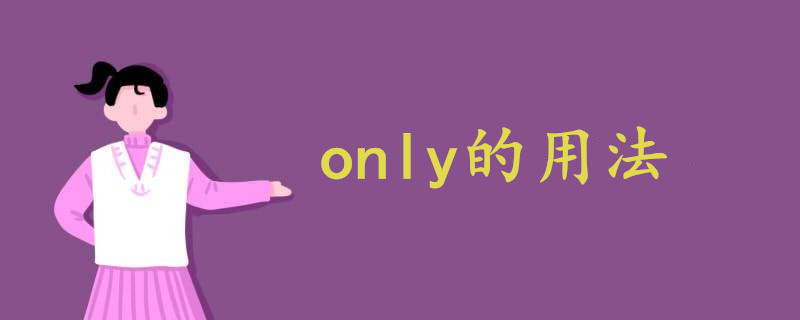only的用法:only可作副词,含义为“只有”、“仅在…情况下”、“只不过”、“仅此而已”、“不料”;也可作形容词,含义为“唯一的”、“最好的”、“最适当的”;还可作连词,含义为“不过”、“可是”。

only的中文含义及用法介绍
1、当only作为副词时,意为只有;只;仅;仅在…情况下(或地点等);只不过;仅…而已;(直到)…才;仅此而已;只会,愈加;不料。
例句:She's their only daughter.
她是他们的独生女。
She's the only person for the job.
她是这项工作最合适的人选。
The lawyer is paid only if he wins...
只有官司赢了才支付律师费。
Only the President could authorize the use of the atomic bomb...
只有总统才能授权使用原子弹。
2、当only作为形容词时,意为唯一的;仅有的;最好的;最适当的。
例句:There are only a limited number of tickets available.
剩下的票数量很有限。
I agreed, but only because I was frightened.
我同意了,但只是因为我受到了恐吓。
Don't blame me, I'm only the messenger!
别责怪我。我只不过是个传话的!
She's only 21 and she runs her own business.
她只有21岁就经营起自己的企业了。
We only got here yesterday.
我们昨天才到这里。
We can only guess what happened.
我们只能猜测发生了什么事。
If you do that, it will only make matters worse.
如果你那样做,只会乱上加乱。
3、当only作为连词时,意为不过;但是;可是。
例句:I'd love to come, only I have to work.
我很想去,但是我要上班。
It tastes like chicken, only stronger.
这东西尝起来像鸡肉,只是味道浓一点。
It's just as dramatic as a film, only it's real...
这就像电影一样充满戏剧性,不过这是真实发生的。










